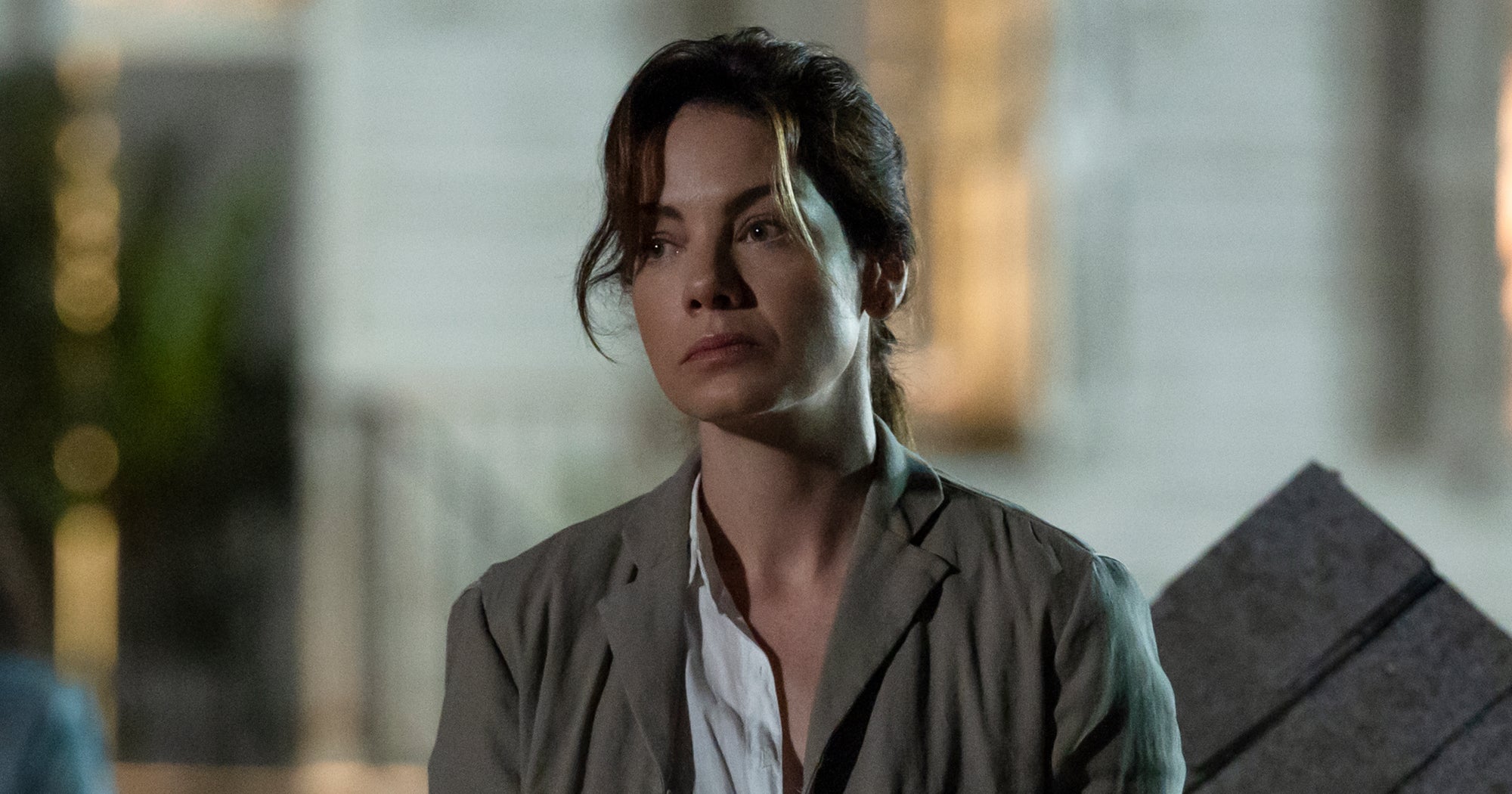
fciwomenswrestling.com femcompetitor.com, fcielitecompetitor.com, Netflix photo credit
April 21, 2020,
You’ve got a good head upon your shoulders.
Hopefully you’ve been told that more than once.
While your good head is making well-thought out decisions, perhaps remember Rudyard Kipling.
Joseph Rudyard Kipling, December 30, 1865 – January 18, 1936, was an English journalist, short-story writer, poet, and novelist. He was born in India, which inspired much of his work.
Mr. Kipling in the late 19th and early 20th centuries was among the United Kingdom’s most popular writers.
His works of fiction include The Jungle Book (1894), Kim (1901), and many short stories, including “The Man Who Would Be King” (1888).
His poems include “Mandalay” (1890), “Gunga Din” (1890), “The Gods of the Copybook Headings” (1919), “The White Man’s Burden” (1899), and “If—” (1910). He is seen as an innovator in the art of the short story.
His children’s books are classics.
In terms of remaining calm and keeping a good head he was once quoted as expressing, “If you can keep your head when all about you are losing theirs.”
What would he think of today’s headlines that span the globe?
The Coronavirus pandemic is one massive thing.
In terms of the anger, greed, hatred, violence, pollution, divisions, amoral behavior, government corruption and more, it does appear that others have lost their way.
Living in the middle of all of this, how can we keep our head? How can we not lose our way?
We sense that it comes down to belief systems.
For example, if you have studied the bible extensively, as we have, there are some who hold the belief, that all of these unfortunate occurrences were foretold and that we should not be surprised that they are occurring.
Nor get heavily involved in trying to solve them one crisis at a time.
As a result, we should keep our head while others appear to be losing theirs.

We should stay positive and keep our faith and belief systems and not get involved in the negative aspects of modern life but focus on the positives and most important, participate in what is constructive in propelling our life along with helping others.
If the two intermingle, then fine.
Things that we can control, as opposed to getting so angry, disillusioned and frightened about things that we cannot.
Knowing the difference between the two can help you keep your head.
Our belief systems and ideologies are a set of principles that help us to interpret our everyday reality.

This could be in the form of religion, political affiliation, philosophy, or spirituality, among many other things. These beliefs are shaped and influenced by a number of different factors.
Some were projected upon us and others have evolved based upon our goals and life experiences.
One of the thought processes that may help keep a person sane is knowing that much of the larger scale issues facing the world were not caused by you, but in a positive way, you can have an impact upon change that can be helpful to others.
Possibly in massive numbers.
The operative words here are positive.
Viewing Netflix’s powerful series “Messiah” can make you question your belief systems and especially those of others.
What is real and what is artificial?
Messiah is an American thriller web television series created by Michael Petroni.

The first season consists of ten episodes, which were released on Netflix on January 1, 2020.
The series focuses on the modern world’s reaction to a man who first appears in the Middle East, whose followers claim him to be the eschatological return of ‘Isa (Jesus). His sudden appearance and apparent miracles spark a growing international following, casting doubts around who he really is, a case investigated by a CIA officer.
The CIA officer is play brilliantly by Michelle Monaghan.
Michelle Monaghan is an American actress best known for her starring roles in Kiss Kiss Bang Bang (2005), Gone Baby Gone (2007), Made of Honor (2008), Eagle Eye (2008), Trucker (2008), Source Code (2011), Pixels (2015), and Patriots Day (2016).
Many may know Michelle for her starring role as Julia Meade in the action spy film series Mission: Impossible, appearing in Mission: Impossible III (2006), Mission: Impossible – Ghost Protocol (2011), and Mission: Impossible – Fallout (2018).
That is quite a resume and her skills were put to the test here in a very emotionally in-depth portrayal of a life and world in chaos where belief systems are constantly being put to the test.
Sometimes burned and destroyed.
Is he truly the Messiah or an exceptional charlatan?
The story keeps you guessing.
Here is one take on it.
The master reviewers at rogerebert.com express, “Netflix’s “Messiah” is a half-fascinating, half-frustrating new series about just how much the world is not prepared for a sequel to a story that billions already believe in. Enter Al-Masih, a man from Syria who can perform certain miracles, speak brilliantly in front of thousands of people, and also might just be a complete fraud.”
Hasn’t that always been the case with Messiah’s since the days of early Rome?
The reviewers surmise that sometimes getting through a TV show, especially one that wants you to binge all 450 minutes of it is, well, a matter of keeping the faith.
Preach on.
We did get through it and much of what they stated in their review was consistent with our experience and conclusions.
In parts it was uneven, frustrating, confusing and, yes, even a little tiring.
That is mostly good. It means we were engaged. There is always the exit button.
We didn’t press it.
So, isn’t that what is exactly supposed to happen if a Messiah actually did come back?
As we watched, unable to binge straight through, we kept telling ourselves that actually, it doesn’t matter whether he is real or not real.
What matters is how people are reacting to the phenomenon.
It is more about them and not him.
It is more about their motives and how they plan to capitalize upon this “thing”.
It is more about their belief systems and the fragility of it. The lack thereof and the vaporizing of what barely existed in the first place.
It tends to expose.
It tends to reflect like a freshly cleaned mirror.

In our view, no matter who he is, you need to keep your head about you while others may be losing theirs. Don’t get caught up in the chaos. Yes, as much as we like to see ourselves as purposeful risk-takers, with these special occurrences we tend to stay on the sidelines.
Let it play out as it were and then we make our decisions based upon what is left if only ashes.
We did some surmising of our own.
Here, in the good book of Netflix, if the Messiah turns out to be real, that speaks more to who the writers, directors and producers are in terms of their religion.
Not faith. Religion.
“Faith is the strength by which a shattered world shall emerge into the light.”… Helen Keller
There is a difference.
Regarding this, we eventually have our major question answered.
What we appreciated from the series, it did make us not question, but reflect upon our own belief systems.
One of our strongest beliefs is not to get angry or excessively caught up in global events that we did not start or have very little control over.
Our thoughts are to stay with our own personal belief systems based upon our extensive life experiences and continual purpose.
By doing so, we sense the question is not whether the Messiah is real or not.
The more penetrating question is how real are our belief systems?

~ ~ ~
OPENING PHOTO fciwomenswrestling.com femcompetitor.com, fcielitecompetitor.com, Netflix photo credit
https://www.poetryfoundation.org/poems/46473/if—
https://www.rogerebert.com/demanders/netflixs-faith-based-thriller-messiah-leads-viewers-astray
https://en.wikipedia.org/wiki/Michelle_Monaghan
https://en.wikipedia.org/wiki/Messiah_(American_TV_series)
https://study.com/academy/lesson/belief-systems-definition-types-quiz.html
https://en.wikipedia.org/wiki/Rudyard_Kipling
https://www.fcielitecompetitor.com/
https://www.brainyquote.com/topics/faith-quotes



